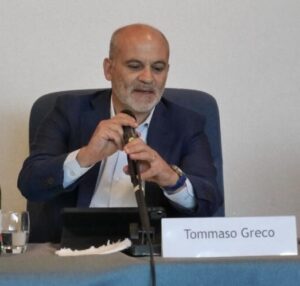How can I be happy when I closed my heart to the misery in which my brother lives?
How can I be happy if I don’t get to work when I see my brother living in cardboard shacks, where the rain falling isn’t surely singing a sweet lullaby but brings a wind of destruction instead?
How can I be happy when my brother doesn’t have someone to welcome him lovingly when he flies from his country in search for a more dignified and just life?
How can I be happy when I leave my brother behind to face loneliness and the abyss of non-sense?
How can I be happy if I wish to satisfy, in every possible way, my every whim, instead of loving the other at my side as I love myself?
It is time to let that seed of justice that we have in our heart emerge and operate, so that solidarity can take over casualness.
It is time to make ours, with courage and honesty, the exciting work that cannot be delayed anymore of re-inventing this solidarity, in front of the “pesar profundo” caused by an economic system, politics and a culture that are all deeply unjust, that have the only aim of satisfying the anxiousness some have for power, earning, owning and narcissism.
It is time to act with the awareness that “la esclavitud de los hombres es la gran pena del mundo” and so, solidarity means getting down to business so that freedom is thought about once again and goes back to being something sacred and inviolable.
It is time we free ourselves from routine, passiveness, complaining and from pretence, in order to renew society with new rules, taking the first step towards the other and stop being lost “in the thoughts of our heart”.
These shall be the guidelines for the work of our cultural centres, of our study and solidarity centres and of our everyday life, so that that harmonious city to which we aspire can become a reality that we can meet, ready to give our life for this. It is the only way to make what is described in that hymn happen, a truly revolutionary hymn, that a very young girl, without power or prestige, wanted to raise by saying a yes that, two thousand years ago, changed history.
See you next year!

